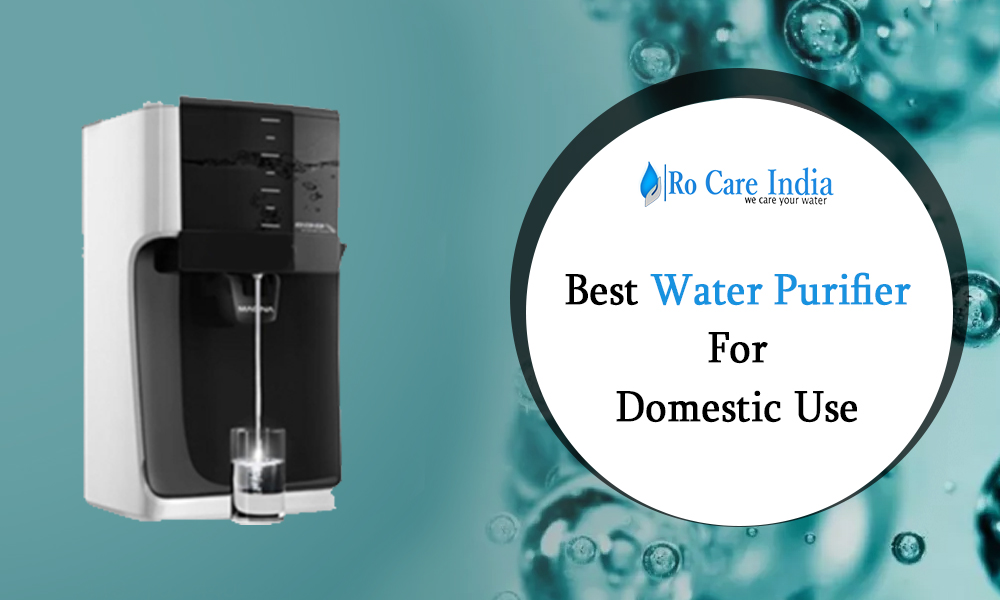One of the most essential and requirements of the human body is water. Life without water is impossible. But increasing population and pollution have pushed this vital element into the list of scarce resources. Saving this asset has become our priority. To do this, scientist across the world has come up with many new ways to reuse and recycle water.

One of the most trusted and reliable ways to clean contaminated water is water purification. Water purifiers are believed to do this task quite efficiently and satisfactorily. With increasing demand, many new companies have joined the league of manufacturers of water purifiers.
Water purification is a method of making water fit for drinking by removing unwanted impurities like chemicals, metals, biological contaminants, etc. Different water purifier uses different types of filters to get rid of unwanted substances.
Why Is Water Filtration A Must?
- Clean and pure water help in easy food absorption as it breaks the food into small particles that are easily digestible
- To make your skin healthy and glowing, drinking clean water having essential nutrients in must
- Immunity level of growing kids gets boost up by drinking clean water
- Water filtration removes all unwanted impurity and retains the required ones
- It also removes bad smell coming from contaminated water
- It removes more unwanted impurities as compared to boiled water.
Choosing the best water purifier depends on the following factors
- Quality of water– Quality of water helps in deciding the type of water purifier to be selected. For example, water in your area is hard; choosing RO water purifier is the best option.
- Total Dissolved Solids or TDS– TDS is a total number of ions including minerals, salts, and metals dissolved in water. It is expressed as mg per unit volume of water (mg/L) or parts per million (ppm). If TDS level higher value than 500 ppm is considered as hard or contaminated water.
Domestic Water Purifier
A domestic water purifier is purifiers used to make water fit for household purposes.
Types of Domestic Water Purifiers
- RO or Reverse Osmosis- A preferred choice for treating hard water and controlling TDS levels.
- Ultra Violet (UV) technology– It can kill 99% of unwanted microorganisms like bacteria, viruses, etc.
- Ultra Filtration (UF) technology– It is efficient in handling TDS levels and remove microorganisms like bacteria, viruses, etc. but not metals.
- Activated Carbon- Carbon present being porous removes impurities from water but does not remove dissolved solids.
- Water Softener– As the name says, it works best for treating hard water. In the case of other water issues like water chlorination, bacterial contamination, or iron staining, this technology is not a successful one.
- Alkaline Ionizer- It maintains the ph level of water.
Domestic RO water purifier contains RO membrane, which is a great thin cloth that filters all impurities, solids, and other poisonous chemicals like pesticides and metals such as Arsenic, Chlorine, Mercury, etc.
Advantages Of Domestic RO Water Purifier
- It is the best option to treat hard water.
- It removes unwanted impurities and solids efficiently.
- It eliminates Cryptosporidium, which is a parasitic coccidian protozoan that can cause intestinal infections.
- Big storage tank saves water in case of electricity cut-offs or shortage of water.
Working Of Domestic RO Plant
RO Plant consists of sediment, carbon filter, RO membrane, UV lamp, UF membrane, and post-carbon filter.
- Pre-filters are used to remove more significant impurities like a sand slit, dirt and other solids in water.
- Carbon filter removes hazardous compounds such as pesticides and is also efficient in making water odor-free.
- RO membrane helps in eliminating minute impurities, stop larger molecules like urea, bacteria, etc. and removes lead, copper, chromium, selenium, fluoride, etc.
- UV lamp kills harmful pathogens present in water. UV rays kill 99% of the harmful bacteria that cause waterborne disease.
- UF membrane is a hollow fiber membrane where water is passed to leave all the impurities behind.
- Post Carbon Filter is the last step in the RO plant. It removes any left-over impurities making water fit for drinking.
Some RO plant also comes with TDS controller that maintains the essential mineral value in water. An excellent industrial water filtration systems makes water fit for drinking and other household tasks. This is design to keep the ph level, take care of TDS levels, removes unwanted impurities and metals, and retains the essential nutrients required by the human body.
As many options available in the market might confuse you, thorough research is must to choose the best one for the health of your family.
Hope this blog will help you in selecting the best water purifier for your loved ones that will make unfit water fit for drinking.
To read more on topics like this, check out the lifestyle category.
Leave a Reply